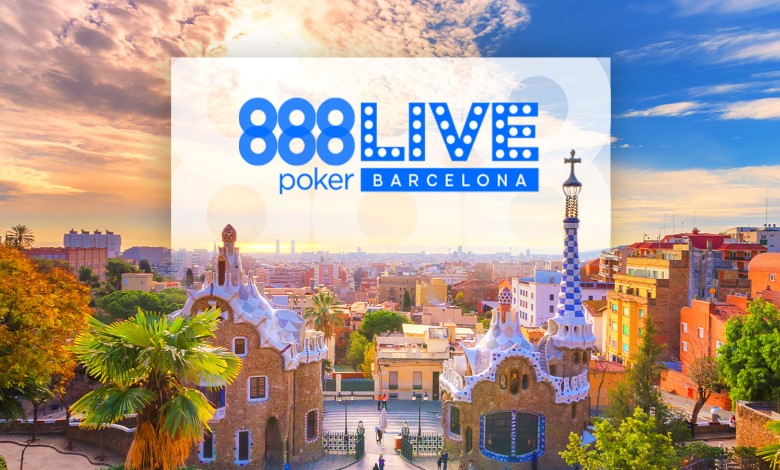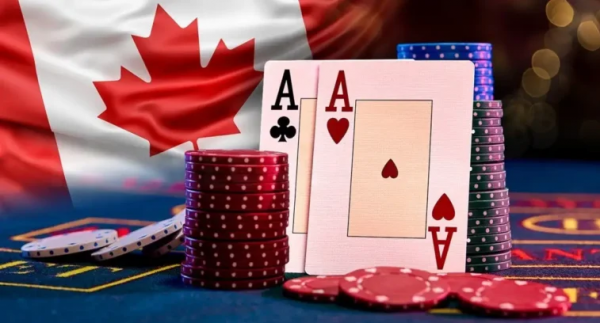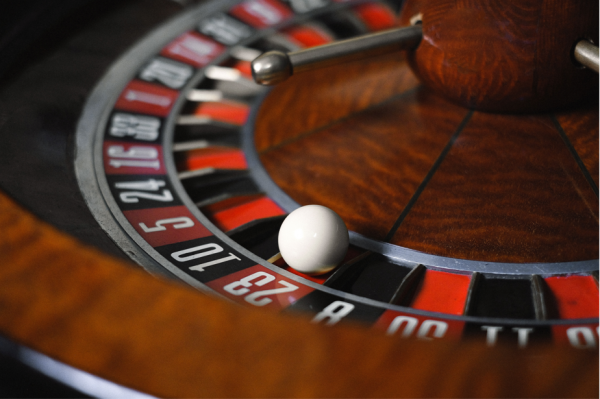If you’ve ever read any of Alex Weldon‘s poker writing, you know that he’s not afraid to hold back. Many of his articles are lengthy and not lacking in op-ed views. That’s one of the many reasons I wanted to invite Alex to participate in our Get to Know the Poker Media series. Truthfully, aside from a few social media exchanges, I didn’t really feel like I knew Alex all that well when approaching him for this interview. I felt, however, that as he was likely to give very exhaustive answers to my questions, it would reveal a lot about him that I would find intriguing. I was not disappointed.

Alex gave what I would deem some incredibly revealing looks into his personal life. I don’t want to spoil anything, so I won’t allude to them here, but I’ll just say that the interview below is very much worth the read.
How did you first get into the business of poker writing and for how long have you been doing it?
I’ve been writing about poker as my primary income stream for just under two years now, having started for PartTimePoker late in 2014. Prior to that, I’d been a regular on PokerForums.org and at one point got an offer to write pieces for their experimental news section. They couldn’t afford to pay very much at all, but I was writing posts and starting threads anyway, so it worked out to a bit of beer money for no extra work.

Image, courtesy Playground Poker
PFO shut down its news section a few months later though, as it wasn’t getting much traffic, and those forums were dying anyway. But, I’d become friends with Steve Ruddock (another prolific poker writer) during my time there, and right after PokerStars Spin-and-Gos came out, I made a comment on one of his articles about them. He said it was insightful and if I wrote it up, he’d find a buyer for it.
That buyer turned out to be Chris Grove, who wanted it for Online Poker Report. Unfortunately, PokerStars raised the rake on the Spin-andGos after he’d bought the article but before it went live, and we decided that the thesis of my article (that Spin-and-Gos were more beatable than they appeared at a glance) didn’t hold up well under the new rake structure, so that article was never published. I pitched some other ideas to him, and although none of them were good fits for his site, he put me in touch with Rob Ireland at PartTimePoker, who did like my ideas. From there, it wasn’t long until I had a carte blanche to write whatever I liked for the site, and eventually transitioned into taking over as lead writer from Dustin Gouker when he left to work for Chris.
What poker outlets have you written for and which has been your favorite (one-time or ongoing) gig over the years?
Aside from PokerForums.org and PartTimePoker, I’ve had a few pieces published on some of Chris’s sites (Online Poker Report and Legal Sports Report, respectively). I’m now the managing editor for the PokerScout scouting report, but that’s a subscribers-only thing that goes out by email.
Although I enjoy my work for PokerScout, in terms of job satisfaction it’s hard to beat the arrangement I have with PartTimePoker. There are no deadlines or quotas, and I have more or less complete discretion when it comes to topics. Prior to writing about poker, I often found myself frustrated by clients who wanted to meddle too much in the creative process, so being allowed to just do my thing is amazing.

Alex obviously had a fondness for card games since he was a toddler
What is it that you love about poker that keeps you so interested in the game?
Games in general have been a lifelong love of mine, and it was sort of inevitable that they’d become a job in one way or another. I wouldn’t say that I have a particular love for poker compared to other games, but I would not be able to make the same sort of living writing, say, board game reviews that I do writing about poker.
That said, poker does lend itself to playing around with statistics and probabilities, which is something I’m fond of. But again, you could say that about a lot of games.
What sort of job(s) did you have before getting into poker writing?
My lifetime career trajectory has been a pretty weird one. I started off with an interest in science and engineering, and ended up doing my Bachelor’s in Astrophysics at Queen’s University in Kingston, Ontario (Canada). But, around the time I finished the degree, I came to the realization that physics was a sufficiently demanding field that it would leave no room in my life for my other interests, so I decided not to continue on to graduate school.
Physics is, of course, a PhD-or-nothing field, so I didn’t really have a plan B. I moved back to Montreal and looked around for work, but I’d put myself in the position of being overqualified for anything I was qualified for. I had a friend at university who was a Korean exchange student, however, and she told me that teaching English over there was a good gig. I sent a feeler email to a recruitment agency just to see, and was surprised when they called me back later the same day to ask whether I could be on a plane within two weeks.
So, that was how I found myself in Gwangju on short notice, having never been outside of North America before, save for a trip to Ireland as a child. I quickly fell in love with South Korea and ended up staying there for a second year, moving to the smaller town of Suncheon and working as the head foreign teacher at a new school that had just opened up there. Things went sour at the end, though: It’s a story for another day, but the short version is that it turned out the school was run by the Korean mafia.

Alex in South Korea
Back in Canada, I still had no idea what I was going to do with my life. I liked to write, so I went into a continuing education program in journalism. I was already a better writer than the professors there, though, so I wasn’t getting anything out of it. I did enjoy a graphic design class I took as an elective, however, so I switched into a certificate program called Graphic Applications for Desktop Publishing. The Adobe Creative Suite, more or less.
I did some freelance design for a bit, then got a job doing color correction and running the presses at a photo lab. Eventually they got me working on their website, but I didn’t get along with the guy in charge of the back end, so I ended up quitting in frustration and going back to freelancing.
The next few years were all over the map. I designed some board games and had a few published by MJ Games. I did writing for both physical and digital games. I learned ActionScript and made a few small Flash games that didn’t make very much money. I did some graphic design and illustration for other people’s digital games. One year, I got hired by the Environmental Defense Fund to create an educational Flash game about fishery management and regulation.
Throughout all this, I played semi-professionally on PokerStars and made maybe $25,000 at that to supplement my other income. As I said, I found my way into poker writing a couple years ago. So, here I am, for the time being anyway.
Tell us a bit about your personal life; where you live, family, etc.
I’m married and the proud father of an extremely clever and chatty three-year-old named Oliver, or “Olliebear” to us. We’re living in an apartment in Montreal for the time being, but now that I have a decent and stable income, we’re considering a move to the Halifax region, where homes are way more affordable.
My wife will have to find a new job if we do that, but of course my work is done entirely online, so I can work from anywhere. I’m actually on vacation at my aunt’s house in Cape Cod as I write this.

How often do you play poker? Home games mostly or in poker rooms? Cash or tourneys?
Not nearly as much as I used to. I’m a tournament player almost exclusively, and the time commitment required for them is incompatible with family life. I also used to play exclusively online, but find I no longer enjoy it very much; I really love to play live. Every few months, when there’s a WPT stop or some other big series going on there, I’ll make the trip out to Playground Poker to play one of those.
Sometimes I play home games with my sister and her husband, but they’ve got twin girls now and their schedule is likewise pretty hectic, so that doesn’t happen more often than every six months or so.
What’s the biggest misconception people have about poker writers/writing?
That we’re paid by the poker industry to promote it. Ultimately, that’s where most of the money comes from, which is inevitable in an economy where people don’t pay for the content they read.
But it’s not PokerStars or 888poker or whoever signing my checks, and they have no say in what I post. Some sites have closer industry ties, I guess, but the notion that we’re paid shills for the industry is ludicrous, hence my sarcastic #ShillLyfe and #PokerMediaIlluminati hashtags on Twitter.
Contrary to what some players might believe, poker writing doesn’t pay too much, especially if you’re a freelancer. Do you do any other sort of work, writing or otherwise?
Actually, I find the pay pretty decent. You’re generally paid by the word or the article, though, so you have to produce in order to get paid. I’m a really fast writer, so that’s why it works for me. I average between 1500-2000 words per work day. If someone’s only producing one 500-word piece per day, well, that’s why they’re struggling.
That said, I also benefit from being a Canadian working for US companies, so the exchange rate basically gives me a 30% bonus on everything I earn. Most of my friends are hoping for the currencies to get back to parity, but of course I’m praying that the Canadian dollar stays in the toilet as long as possible.

What other hobbies do you have? Tell us about them.
Games of all types, of course. Most recently I decided to see what this HearthStone thing is all about, and it’s gotten its hooks into me pretty deep.
I used to box, but fatherhood forced me to take a break, and now I have back problems that prevent me from going back. My new sports are orienteering and the unfortunately-named ROGAINE (Rugged Outdoor Group Activity Involving Navigation and Endurance). They’re kind of similar, though the latter is more strenuous. In both cases you’re navigating with map and compass, on trail and off, but in orienteering you’re usually in a big city park or nature reserve, whereas ROGAINE is more wilderness.
Also, orienteering is a race where you have to visit all the controls in a specific order, and do it as quickly as possible. In ROGAINE, you’ve got a fixed amount of time, perhaps 3, 6 or 8 hours, and a set of controls that are worth different numbers of points, based on how far and hard-to-reach they are. You have to collect as many points as possible and make it back to the start within the time limit.
I used to do a fair bit of visual art as well – digital drawing and so forth – but one of the side effects of my anti-depressants has been a loss of that artistic drive, which is just as well since finding time for that was becoming a problem.

One of Alex’s drawings
Whoa – that was an unexpected slip in. Mind if I probe deeper re: the anti-depressants? When were you diagnosed as having depression? How did this affect your day-to-day life?
I’m actually taking the meds for anxiety rather than depression. Apparently many anti-depressants work for both. The fundamental problem, which is more of a mixed blessing, is something pretty common but which they’ve only started discovering recently. As far as I can tell there’s no established terminology; many psychologists still use outdated words like “gifted,” which I hate, but I think a better term would be “hyper-perceptive.” Essentially, some people have a lesser ability to filter input at the unconscious level. All the stuff that normally gets rejected as irrelevant and distracting before it reaches the conscious levels of the sensory centres comes through.
 It’s present from birth and leads to a whole bunch of other side effects, both internal and social, which is why the underlying “condition” (if you want to call it that) was only discovered recently. A lot of the side effects are positive: I’m a quick learner, for instance, and have a lot of empathy for others. But at the same time, it leads to being easily overwhelmed, very sensitive, and has some ADHD-like symptoms too. Socially, it leads to being very critical of oneself and of others, and also an unreasonable amount of pressure, again both from oneself and from others. All of that feeds into a generalized anxiety and baseline stress level that can become unmanageable when there are a lot of outside stressors. The way I’d describe it is like the world has a volume knob and mine is stuck on 10, whereas others have some degree of control over theirs.
It’s present from birth and leads to a whole bunch of other side effects, both internal and social, which is why the underlying “condition” (if you want to call it that) was only discovered recently. A lot of the side effects are positive: I’m a quick learner, for instance, and have a lot of empathy for others. But at the same time, it leads to being easily overwhelmed, very sensitive, and has some ADHD-like symptoms too. Socially, it leads to being very critical of oneself and of others, and also an unreasonable amount of pressure, again both from oneself and from others. All of that feeds into a generalized anxiety and baseline stress level that can become unmanageable when there are a lot of outside stressors. The way I’d describe it is like the world has a volume knob and mine is stuck on 10, whereas others have some degree of control over theirs.
Through most of my adult life I’ve been self-medicating for the anxiety with alcohol, which, social stigma aside, is actually a fairly effective drug for that purpose. But of course, when stress increases and you “up your dosage,” as it were, it becomes a problem.
Parenthood is stressful, of course, and the poker world was going through a particularly ugly phase last winter, plus there are some ongoing family issues I don’t want to go into, and lots of awful stuff in the news, like the Paris attacks and so forth. All of that together was way too much for the “have a few drinks and try not to think about it” strategy to be effective, and I ended up having a bit of a meltdown which culminated in a trip to the hospital where they gave me the prescription. That, and therapy have been really great, and I wish I’d gotten help much earlier in life… a lot of things in my past make much more sense in retrospect, now that I understand this about myself.
Have you got any specific message or tips to poker players (or anyone for that matter) suffering from depression?
Whether it’s depression, anxiety or something else, my advice is simply to get help sooner, rather than later. Not everyone needs to be medicated, but I think in the modern world essentially everyone needs therapy. Social evolution happens much faster than biological evolution, and the brains we’re given are adapted for a world that bears very little resemblance to the one we live in now. The nature of neuroses is that your brain convinces itself that its problems are unique and shameful, but if I’ve learned one thing from this experience and from the people who reached out to me in the aftermath of my breakdown, it’s that most – if not all – of the people around you are not okay either. Most just don’t talk about it, except with the people closest to them, because they’re afraid of being judged or coming off as burdening others with their problems.
There’s also all this stigma around getting help for minor mental problems because we’ve still got these lingering images from the dark ages of psychology – asylums, lobotomies, unethical experiments and so forth – which lasted well into the 20th century. Booking your first session with a therapist seems like such a huge deal until you’ve done it, like you’re admitting to some huge personal failing and committing to extreme measures to fix yourself. When you get there, though, you’re just sitting down with a friendly person for an hour, who will listen to you without judgment while you unload all your bullshit, but then ask some questions that force you to be honest with yourself about where the feelings are really coming from and come up with better strategies to manage them. It’s more coaching than anything; there’s no stigma when a coach helps his team learn to perform better in high-pressure games, so I don’t see any reason it should be different getting help learning to keep it together through difficult periods in work or family life, or what have you.
Psychiatric drugs are also less of a big deal than people think. Of course, different drugs affect different people differently, so it’s a bit hit-or-miss, but most of the effects are pretty subtle. In my case, the sertraline (Zoloft) has worked really well. I don’t notice it most of the time, but basically it has just given me more conscious control over what I’m thinking about. My mind doesn’t wander as much, which I think is also what has killed my artistic drive, but it means that I can deal with one task or try to solve one problem at a time, instead of constantly stressing about every problem in my life at once. So, if you think your problems are bigger than therapy alone will solve, seeing a psychiatrist to get a prescription is worth a try. The drugs take a while to take effect, though, so you’ll save yourself a few weeks of unpleasantness if you’re proactive when you see an impending crisis coming, rather than waiting until you’re actually in the middle of it like I did.
If I may say so, you’re quite brave for opening up like that. Good on you, sir. Alright, so back to poker, then. What do you enjoy writing about most in poker – lifestyle/feature pieces, op-eds, promotional stuff, tourney recaps, live/online poker news, or live reporting?
Well, I’m someone with a lot of opinions, so there’s a fair bit of editorializing in nearly everything I write, but games themselves are my real passion. So, my favorite pieces to write are ones where I can do some strategic analysis, or take a look at some new variant or what have you.
What’s something you still haven’t yet done/accomplished in poker that’s on your bucket list?
When I stopped playing seriously online, my best cash was around $4300 for winning the Hot $22 on PokerStars. Later, just donking around at $3 Spin-and-Gos, I happened to bink the jackpot, back when it was “only” 3000x, and won it, so now that’s my best cash, $9000. Of course, I was happy to win it, but now I’m always a little embarrassed when someone asks me what my best cash is.
So, my currently outstanding poker goal is to win five figures in something more skill-based and brag-worthy than a Spin-and-Go; preferably a live event.
Alright, the stage is yours – go ahead and let loose about something you just HAVE to get off your chest.
Well, as I said, PartTimePoker gives me a platform to speak my mind about whatever I like, so I don’t have many unexpressed frustrations.
I do find the poker world in general pretty infuriating and depressing at times, though. Within the paradigm of the game itself, you’re obliged to be completely self-interested, but I find that among the professional community, that almost universally creeps into people’s lives away from the felt, and then compounds itself because they spend most of their time hanging out with others from the same world. So, you get a lot of narcissistic, even sociopathic behavior, from people who probably weren’t quite that awful when they first got into it.
Unfortunately, it’s stories about the darker side of poker that get the most traffic, so my professional judgment obliges me to write about those things, but I don’t enjoy it.







Comments